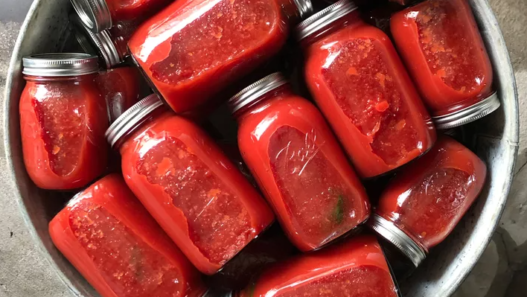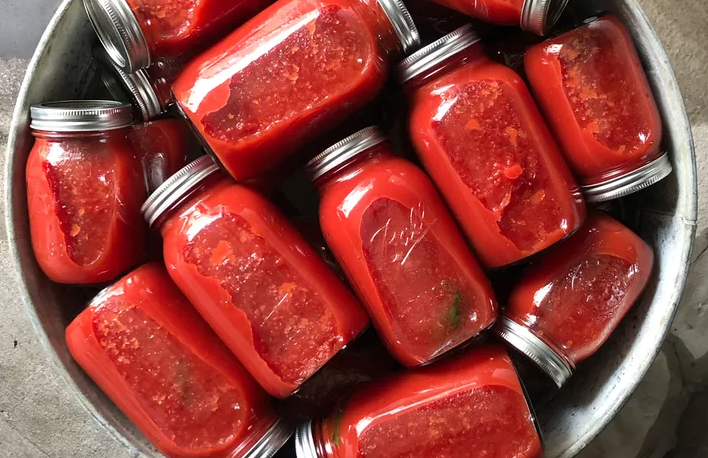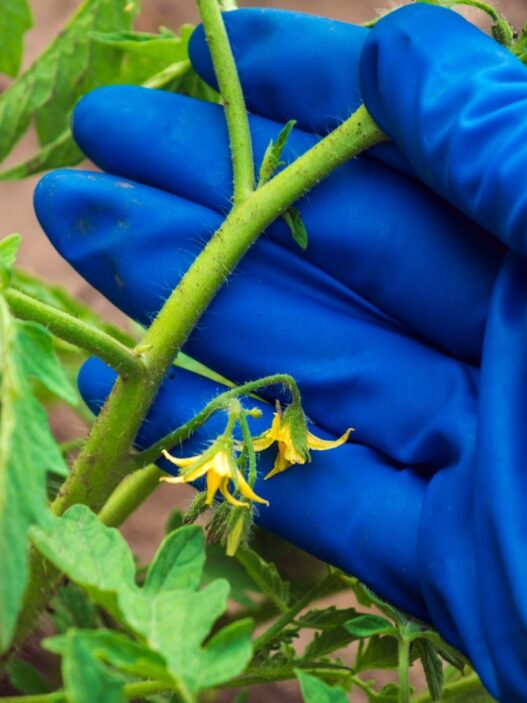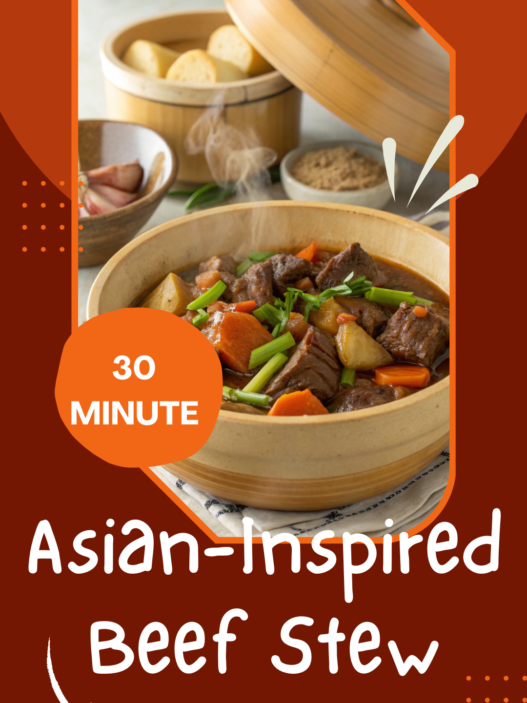Canned tomatoes are perfect to provide you with the essence of summer fruits, even in the off-season. But are they really cooked when going through the whole preservation process?
I’ve been a professional canner for a decade now, and I can say with confidence that canned tomatoes are (actually) cooked. When you sterilize the cans filled with tomatoes, that’s the point when they are fully prepared.
In this read, I’ll reveal these most asked questions:
- Are canned tomatoes cooked?
- Why do canned tomatoes taste different than fresh?
Are canned tomatoes considered cooked?
Yes, canned tomatoes are considered cooked. You’ve heard it right! It doesn’t matter if you’re keeping them whole, cutting them into pieces, or turning them into sauce – they all go through the same canning process, which cooks them.
Here’s how it works: First, you gather ripe tomatoes. Then, you remove their skins (I sometimes choose not to). After that, you place the tomatoes in cans, which are sealed tightly.
Now, the cooking part comes in when you finally sterilize the cans (in a water bath canner or a pressure canner)
Don’t know about sterilization? It means you heat the cans in hot water to get rid of any harmful bacteria or germs that might be inside. This not only makes the tomatoes safe to eat but also gives them a cooked flavor.
So, in a nutshell, when you open a can of tomatoes, you’re getting delightful goodness that has been both preserved and cooked. It’s a bit like having a taste of summer all year round!
Why do canned tomatoes taste different than fresh?
Canned tomatoes often have a different taste when you compare them to fresh ones because they get cooked during sterilization (which is necessary for long-term preservation)
This process altogether changes the flavor profile! Why? Well, some canned tomatoes may also contain additives (like salt, vinegar, or citric acid) for preservation or flavor enhancement.
On top of it, you may want to can tomatoes for a longer time (sometimes years) before using them. This duration can change their flavor and are no match for the freshness of newly harvested tomatoes.
Texture differences are another factor! Canned tomatoes often have a softer texture than the firmness of fresh tomatoes. It also impacts the overall taste experience.
Are canned tomatoes less nutritious than fresh ones?
Although canned tomatoes go through a cooking process during canning, they are nowhere less nutritious than fresh ones.
Some vitamins and minerals in tomatoes are sensitive to heat and can degrade during the canning process. For instance, vitamin C (Known for its antioxidant properties) is particularly vulnerable to heat-induced degradation.
Certain B vitamins, such as thiamine (vitamin B1), riboflavin (vitamin B2), and niacin (vitamin B3), may also experience some loss.
But here’s the good news! Canned tomatoes still retain many essential nutrients that contribute to a healthy diet. They are a good source of vitamin A (Important for vision and immune function)
They are also rich in potassium (A mineral crucial for regulating blood pressure and muscle function)
There’s more! Canned tomatoes are full of lycopene. It’s a powerful antioxidant that fights many chronic diseases. The heat from canning releases lycopene in the tomatoes! Amazing, right?
Are there ways to minimize the cooked taste of canned tomatoes in dishes?
It ain’t that tricky! You can lower the cooked taste of canned tomatoes in your dishes in many ways. Let’s discuss a few:
1. Select the Right Tomato Varieties
When your main goal is to can tomatoes for later use, you need to pick the right ones! Some varieties are known for their excellent flavor (Which can hold up well in canning)
For example, Heirloom tomatoes are rich in flavor and available in many colors and sizes. Their taste is pretty sharp and doesn’t give a cooked or dull flavor (Even when going through high heat)
2. Add Acidic Ingredients
The acidic ingredients bring a burst of tanginess and zest to your tomatoes and also counterbalance any overcooked taste.
Just a small squeeze of lemon juice or a dash of vinegar in them makes a major difference in the overall taste of your dishes.
It gives them a delightful, lively twist that can bring any tomato-based recipe to life!
3. Blend Your Canned Tomatoes
Here’s another trick! You can blend or puree your canned tomatoes before using them in your recipes. This simple touch makes their texture smooth and balances out the cooked taste.
Can canned tomatoes be eaten raw?
Canned tomatoes are not raw! This is because you have to cook them during canning and show a difference in taste from the fresh, raw tomatoes.
When you eat canned tomatoes straight from the jar, you’ll notice that they lack the crispness and freshness of raw tomatoes. To be more precise, they have a softer texture and a flavor that reflects the cooking process.
Although canned tomatoes are available throughout the year to add their unique goodies to dishes (Sauces, stews, and soups), unfortunately, you can’t enjoy them raw in salads or sandwiches!
Do professional chefs use canned tomatoes?
Yes, professional chefs (often) use canned tomatoes. Why is that? Mainly because they are already cooked, and that’s a big plus for them to speed up their recipe preparation for customers.
That’s a good thing! They don’t have to cook fresh tomatoes for hours to make a rich and flavorful sauce, soup, or stew.
Like I said before, the canned tomatoes are available year-round and have a consistent flavor (which is important when chefs are trying to make dishes that taste just right every time).
So, whether it’s a famous chef in a Michelin 3-star restaurant or someone cooking at home, canned tomatoes are a go-to ingredient for many!
Key Takeaways!
There you have it, my curious buddies! I’ve answered a bunch of questions, including, “Are canned tomatoes cooked?” The short answer is an astounding YES!
I hope this discussion has provided you with a sound understanding of canned tomatoes and how they fit into the art of cooking. Now, you know how to make the most of the preserved goodness to make delicious and satisfying dishes for your friends and family in your kitchen.











